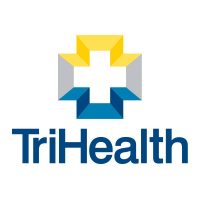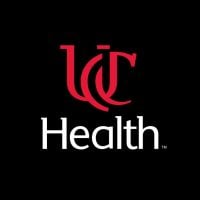Bethesda Alcohol and Drug Treatment
Drug Rehab Center in Cincinnati, Ohio
Bethesda Alcohol and Drug Treatment is an addiction treatment facility in Cincinnati, OH that offers a range of services including detoxification, residential care, intensive outpatient level of care, aftercare support programs and interventions to help individuals overcome issues of alcoholism, opioid addiction, substance abuse, and dual diagnosis.
About This Cincinnati, OH Facility
Bethesda Alcohol and Drug Treatment is an addiction treatment facility located in Cincinnati, Ohio. Founded in 1995, Bethesda has been providing comprehensive treatment services for individuals suffering from alcoholism, opioid addiction, substance abuse, and dual diagnosis. They offer a wide range of programs to suit the needs of each individual, including aftercare support, detoxification services, intensive outpatient options, and outpatient levels of care. With a commitment to helping those struggling with addiction, Bethesda Alcohol and Drug Treatment provides compassionate and effective treatment to facilitate recovery and long-term sobriety.
In line with their mission to address various forms of addiction, Bethesda Alcohol and Drug Treatment offers a multitude of services and treatment approaches. Their experienced professionals utilize evidence-based practices to provide detoxification support for individuals grappling with physical dependency. They also offer comprehensive drug rehab programs that focus on both the physical aspects of addiction as well as addressing underlying psychological factors. Dual-diagnosis support is available for individuals facing co-occurring mental health issues alongside their substance abuse problems. Moreover, they provide intensive outpatient programs where clients can attend therapy sessions while living at home. Through interventions and personalized treatment plans catered to individual needs, Bethesda Alcohol and Drug Treatment aims to promote lasting recovery from addiction.
Genders
Ages
Modality
Additional
Conditions and Issues Treated
Using both legal medications and illegal substances in order to maintain an addiction is substance abuse. Illegal substances can become addictive after a single use. If you are obtaining legal medications illegally, you may be suffering from substance abuse.
Fortunately facilities like Bethesda Alcohol and Drug Treatment in Cincinnati, OH are here to help.
Opioid addiction treatment facilities in Ohio, like Bethesda Alcohol and Drug Treatment cover both illegal and prescription opioids abuse. Most plans include detoxification and subsequent medications to ease the process. Behavioral therapies and counseling are also necessary to resolve the root cause of addiction.
A dual diagnosis is when someone deals with both alcohol and mental or emotional disorder. Emotional trauma, bipolar disorder, schizophrenia, depression can be part of dual diagnosis therapy. It must happen simultaneously to get care for these conditions to handle any of them effectively.
Levels of Care Offered
This center offers a variety of custom treatment tailored to individual recovery. Currently available are Aftercare Support, Detox, Drug Rehab, Dual-Diagnosis, Intensive Outpatient, Intervention, Outpatient, with additional therapies available as listed below.
Detox is a drug rehab process that is designed to remove the drug addict from the drug safely. The problem with solely using detox as a sobriety tool is that it alone provides no therapy or counseling. If a person goes through detox and returns to their everyday life, they may begin using again once the detox has worn off.
Detox does not help with cravings, so for some addicts, this can be extremely difficult and should be both done and supervised by medical professionals. Aftercare is crucial, so selecting a facility that offers additional services is important.
An outpatient treatment program is set up to help with alcohol or drug addiction, or a co-occurring disorder. The patient must attend the Ohio facility for their therapy and other programs but are able to return home each night. The frequency of mandatory attendance decreases after much of Bethesda Alcohol and Drug Treatment‘s program is complete.
Not everyone who struggles with addiction in Ohio is ready to go into a treatment program. For these individuals, intervention services may help. Friends and family of the individual can call and set up an intervention. We have a professional come and lead the discussion.
Treatment is just the first step to maintaining sobriety. After treatment, aftercare support at Bethesda Alcohol and Drug Treatment helps the individual adjust to a life without substances. This support may involve a sober living home in or near Cincinnati, OH, career counseling, or educational assistance. This is when a relapse prevention plan begins to take shape.
Bethesda Alcohol and Drug Treatment‘s Therapies & Programs
When family members are more proactive and involved in the treatment procedure, it encourages the patient to advance his or her progress. Moreover, it shouldn’t be ignored that genetics play a role when it comes to addiction, so it’s better to approach the problem as a unit. Also, with proper education, family members can help an individual avoid addiction triggers and guide him or her in making lifestyle changes necessary for his or her sobriety.
Dialectical Behavior Therapy (DBT) helps those who attend Bethesda Alcohol and Drug Treatment understand how their feelings, beliefs, and thoughts affect their behaviors. DBT is particularly useful for people with self-harming behaviors, as well as those with substance abuse disorders. DBT teaches people how to tolerate distress, regulate their emotions, and how to become mindful.
Cognitive Behavioral Therapy (CBT) is a type of psychotherapy that focuses on the underlying thoughts and behaviors that caused the problem of addiction in the first place and may cause a relapse. Negative feelings are common in substance abuse disorders, and if not recognized, they can cause co-occurring disorders.
CBT involves strategies that help to change the thinking and behavioral pattern by cognitive restructuring. In simple terms, it helps to remove negative thoughts and provides long-term benefits. Also, CBT promotes self-awareness, self-control, and healthy ways to respond to negative thoughts. It can be administered as a mono-therapy as well as a part of combination therapy.
The 12-step program is a part of substance abuse treatment. In this program, peers help each other to achieve the goal of abstinence. It was initially developed by the founders of Alcoholics Anonymous. Due to its huge success, the 12-step program is included as a part of other substance abuse treatments.
The 12 steps guide at an individual level. It begins with the individuals accepting that they are addicts, and they understand its consequences. It is followed by focusing on the recovery process and making amends for hurting others. The program provides the benefit of cognitive restructuring, which refers to the process of change in the negative thoughts that leads to long-term benefits.
Payment Options Accepted
For specific insurance or payment methods please contact us.
Is your insurance accepted?
Ask an expert, call (888) 674-0062
Additional Details
Specifics, location, and helpful extra information.
Cincinnati, Ohio 45206 Phone Number(513) 569-6116 Meta DetailsUpdated November 25, 2023
Staff Verified
Patient Reviews
There are no reviews yet. Be the first one to write one.
Cincinnati, Ohio Addiction Information
Ohio is suffering from a drug abuse problem that is costing thousands of its residents their lives every single year. Opioids, particularly Fentanyl and heroin, are the leading drugs in the state. The state ranks in the top 10 for illicit use of painkillers. Opioid-related overdose rates in Ohio are by far some of the highest in the country.
In Cincinnati, OH, more than 400 drug-related deaths were in 2016. There were over 5 million drug prescriptions written in 2015. This is a 20% increase from 2010. Drug addiction and abuse can lead to crime and violence and harm public health. Inpatient treatment facilities provide around-the-clock care and supervision. 12-step programs, such as Alcoholics Anonymous or Narcotics Anonymous, are widely available in Cincinnati.
Treatment in Nearby Cities
- Massillon, OH (195.4 mi.)
- Troy, OH (64.9 mi.)
- Reynoldsburg, OH (106.5 mi.)
- Chagrin Falls, OH (228.4 mi.)
- Bellefontaine, OH (93.8 mi.)
Centers near Bethesda Alcohol and Drug Treatment
The facility name, logo and brand are the property and registered trademarks of Bethesda Alcohol and Drug Treatment, and are being used for identification and informational purposes only. Use of these names, logos and brands shall not imply endorsement. RehabNow.org is not affiliated with or sponsored by Bethesda Alcohol and Drug Treatment.










